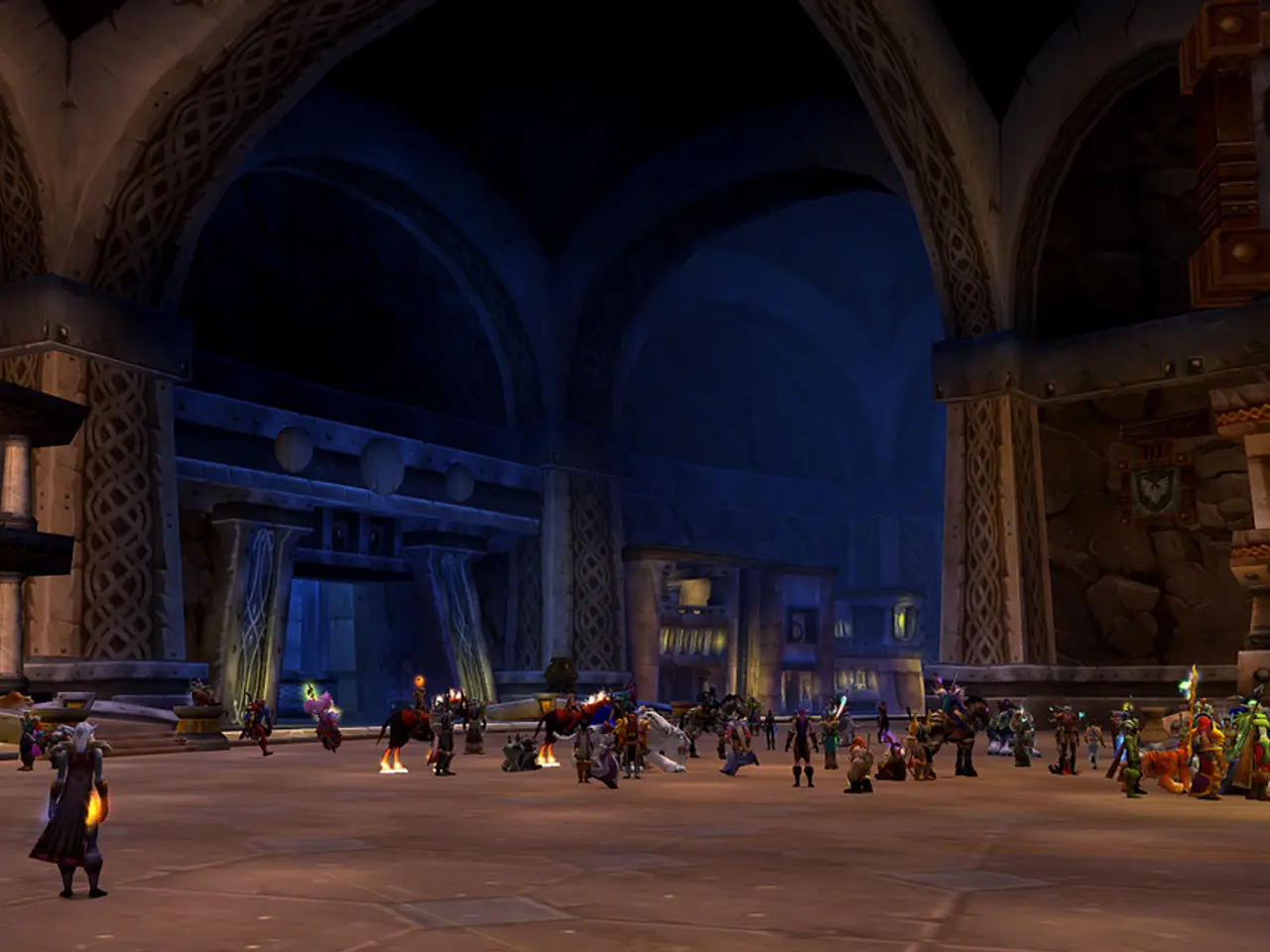Nostalgic Reflections on Bygone Eras in the Entertainment Sector - Cherishing Our Classic Cinema Releases
In the world of entertainment, two giants - AMC Theaters and Disney - have weathered the storms of time, each with a rich history and a resilient spirit.
AMC Theaters, founded in 1920 by Edward D. Durwood, has been a cherished part of many lives, particularly for Generation Z who remember it as a cornerstone of their childhood. Originally named Durwood Theaters, Stanley Durwood, one of Edward's children, joined the family business and later became its head, growing it into a nearly national corporation.
The 1980s marked a growth spurt for AMC, and today, it offers movies from production companies such as Disney, Pixar, Warner Bros, and more, providing a diverse cinematic experience for its patrons. AMC's appeal lies not only in the movies it screens but also in the social interaction it facilitates, a factor that remains crucial in an increasingly digital age.
Disney, on the other hand, is one of the few animation studios that have stood the test of time. Founded in 1923, it created the iconic character Mickey Mouse and produced its first cartoon, Alice in Wonderland. Disney's first film, Snow White and the Seven Dwarves, debuted in 1937 and became the highest-grossing film of its time.
However, the landscape of entertainment has shifted dramatically over the years. The rise of home entertainment options like streaming, video games, and advanced home theater systems has steadily eroded theatrical ticket sales since the 1950s. The simultaneous release of films in theaters and on on-demand streaming platforms has further pressured theaters.
Disney, too, faces evolving global audience preferences. There's a significant shift toward locally produced films, particularly in countries like Brazil, China, and Japan where local animated and live-action anime movies dominate box offices. This trend challenges major studios to diversify and globalize their offerings while maintaining their brand appeal.
Recently, a Disney film, Wish, failed to entice audiences due to its reliance on nostalgic value and lack of other values like quality songs and a compelling villain. Critics also pointed out the uninspiring and confusing combination of 2D and 3D styles in its animation. On the other hand, Disney's recent movies, such as Frozen II, Moana, and Coco, have been successful due to their exploration of mythologies not previously explored and representation of minorities.
Both AMC Theaters and Disney are adapting to these challenges. AMC has improved the theatrical experience through premium formats and events, leveraged marquee summer blockbusters to draw crowds, and invested in brand loyalty communities. Disney, meanwhile, has expanded into international markets, incorporating local cultural elements, and experimenting with varied distribution models to appeal to global audiences.
In the end, both AMC Theaters and Disney continue to captivate audiences with their stories, teaching important lessons and providing a unique cinematic experience. As they navigate the changing landscape of entertainment, their resilience and adaptability remain a testament to their enduring legacy.
In the realm of entertainment journalism, an editorial piece could delve into the history and culture of two titans, AMC Theaters and Disney, comparing their resilience in the face of shifting trends. Psychology might offer insights into why these establishments, despite the digital lifestyle's growth, continue to attract patrons, lying in part in the social interaction they facilitate.
News reports have highlighted the challenges these behemoths face, such as the impact of streaming services and locally produced films on their box office success. For instance, Disney's recent venture, "Wish," underperformed, but its previous films like "Frozen II," "Moana," and "Coco," thrived due to their diverse, culturally rich themes and minority representation.
Lifestyle segments might explore how AMC Theaters is enhancing the cinematic experience through premium formats and events, while Disney is expanding globally, incorporating local cultures, and experimenting with varied distribution models to navigate this transformation. Movies-and-TV critics, on the other hand, can dissect the animation styles used in Disney's productions and debate their effectiveness in engaging audiences.
With the evolving entertainment industry and the blossoming of new platforms, it's crucial for establishments like AMC Theaters and Disney to remain adaptable and innovative, maintaining their brand appeal while catering to the changing tastes of their global audience. This underlines an essential aspect of their resilience - their ability to redefine and reimagine their role in the ever-changing world of culture and storytelling.








